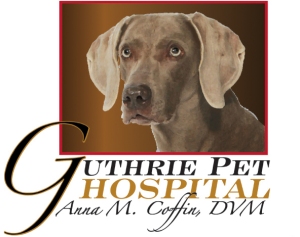February is national pet dental health month, so flip your pet’s lip and look for swollen or red gums, discolored teeth and bad breath. All these are common symptoms of dental disease. Dental disease is the second most common disease in dogs and cats. Eighty percent of all pets over the age of three usually have periodontal disease. Oral health affects the entire body! Bacteria from the periodontal disease is released into the bloodstream and can affect vital organs such as the heart, liver and kidneys.
Just like us, all pets need dental care throughout their lives. Taking them to see a dental veterinarian regularly will prevent pain, tooth loss and organ damage. Bad breath is the first sign of oral disease in pets. Dental care will help your pet live a longer, more comfortable life. Dental disease hurts long before you notice there is a problem as pets are excellent in hiding pain.
The crown of the tooth, which is the only portion visible, makes up 30% of your pet’s tooth. The roots, which are below the gum line, make up 70% of the tooth and is impossible to visualize with the naked eye. Therefore, dental x-rays are an important tool that needs to be used during your pet’s dental cleaning.
Once plague and tartar are built up on your pet’s teeth a dental cleaning is necessary to get them thoroughly cleaned. A prophylactic cleaning without anesthesia is dangerous to your pet and his teeth. All dental cleanings should be performed with general anesthesia. An ultrasonic cleaner is used to remove the tartar. Cleaning below the gum line is imperative to removing all the bacteria that is causing the tartar build up. Full mouth dental x-rays should also be performed during every cleaning to detect any invisible problems happening below the gum line.
Once your pet’s teeth are clean it is very important to continue with daily dental home care. Brushing your pet’s teeth is best and actually easier than you think. Ask your veterinarian to demonstrate teeth brushing when your pet is in the exam room. Encouraging your pet to chew on greenies or rawhide chews will also help prevent further tartar build up. Science Diet also has a prescription diet that helps keep pet’s teeth clean.
Please e-mail me with your questions at ACoffin@aol.com and put “Ask Dr. Anna” in the subject line or mail your questions to 123 West Harrison Guthrie, OK 73044.




Be the first to comment on "Ask Dr. Anna: National Pet Dental Health Month"